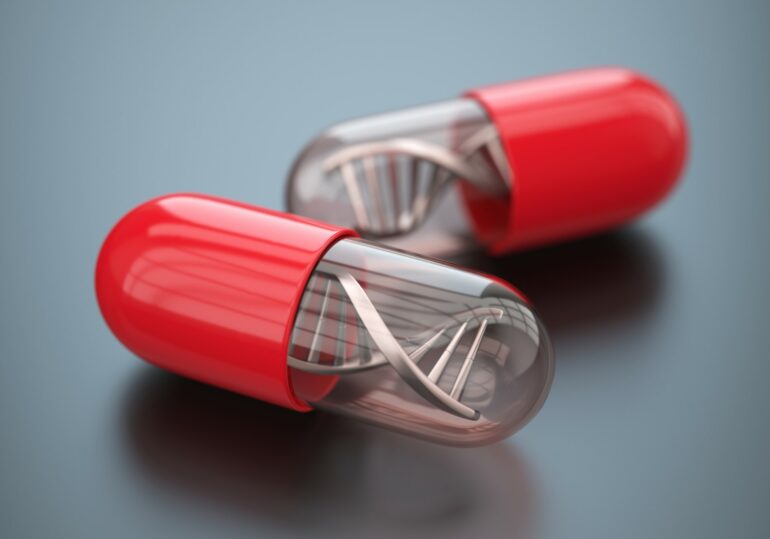Have you ever wondered why certain medications don’t seem to work as well for you as they do for others? This variability in drug response is what pharmacogenomic testing hopes to explain by looking at the genes within your DNA.
Pharmacogenomics, or PGx, is the study of how genes affect your response to medications. Genes are segments of DNA that serve as an instruction manual for cells to make proteins. Some of these proteins break down or transport certain medications through the body. Others are proteins that medications target to generate a desired effect.
As pharmacists who see patients who have stopped multiple medications because of side effects or ineffectiveness, we believe pharmacogenomic testing has the potential to help guide health care professionals to more precise dosing and prescribing.
How do PGx tests work?
PGx tests look for variations within the genes of your DNA to predict drug response. For instance, the presence of one genetic variant might predict that the specific protein it codes for is unable to break down a particular medication. This could potentially lead to increased drug levels in your body and an increased risk of side effects. The presence of another genetic variant might predict the opposite: It might predict that the protein it codes for is breaking down a medication more rapidly than expected, which may decrease the drug’s effectiveness.
For example, citalopram is an antidepressant broken down by a protein called CYP2C19. Patients with genetic variants that code for a version of this protein with a reduced ability to break down the drug may have an increased risk of side effects.
PGx is a form of personalized or precision medicine.
Currently, there are over 80 medications with prescribing recommendations based on PGx results, including treatments for depression, cancer and heart disease. There are commercially available PGx tests that patients can have sent directly to their doorstep with or without the involvement of a health care professional. These direct-to-consumer PGx tests collect DNA from either a saliva sample or cheek swab that is then sent to the laboratory. Results can take anywhere from a few days to a few weeks depending on the company.
Some companies require a consultation with a health care provider, often a pharmacist or genetic counselor, who can facilitate a test order and discuss any medication changes once the results come back.
Limitations of PGx testing
PGx testing will not be able to predict how you will respond to all medications for several reasons.
First, most PGx tests do not look for every possible variant of every gene in the human genome. Instead, they look only at a limited number of genes and variants strongly linked to specific drugs. PGx tests can predict how you will respond only to medications associated with the genes it tests for.
Some drugs are broken down in very…



